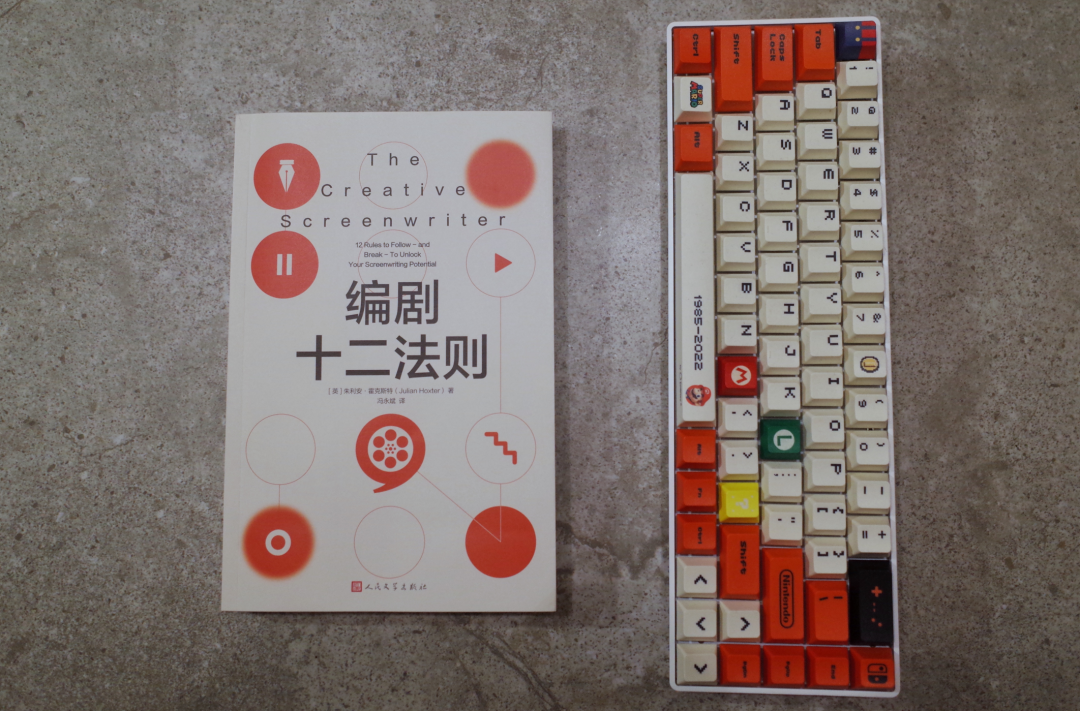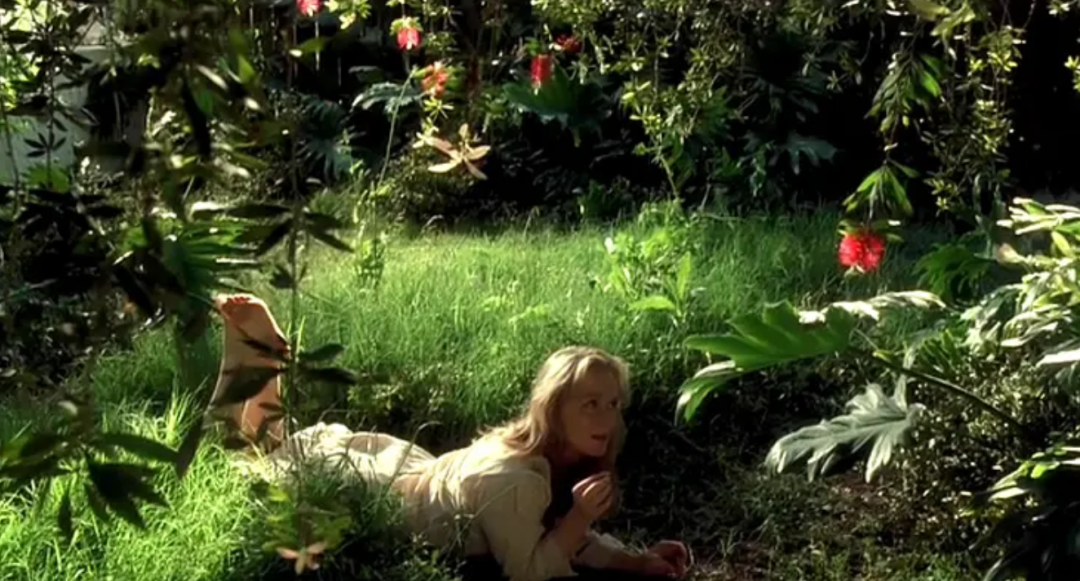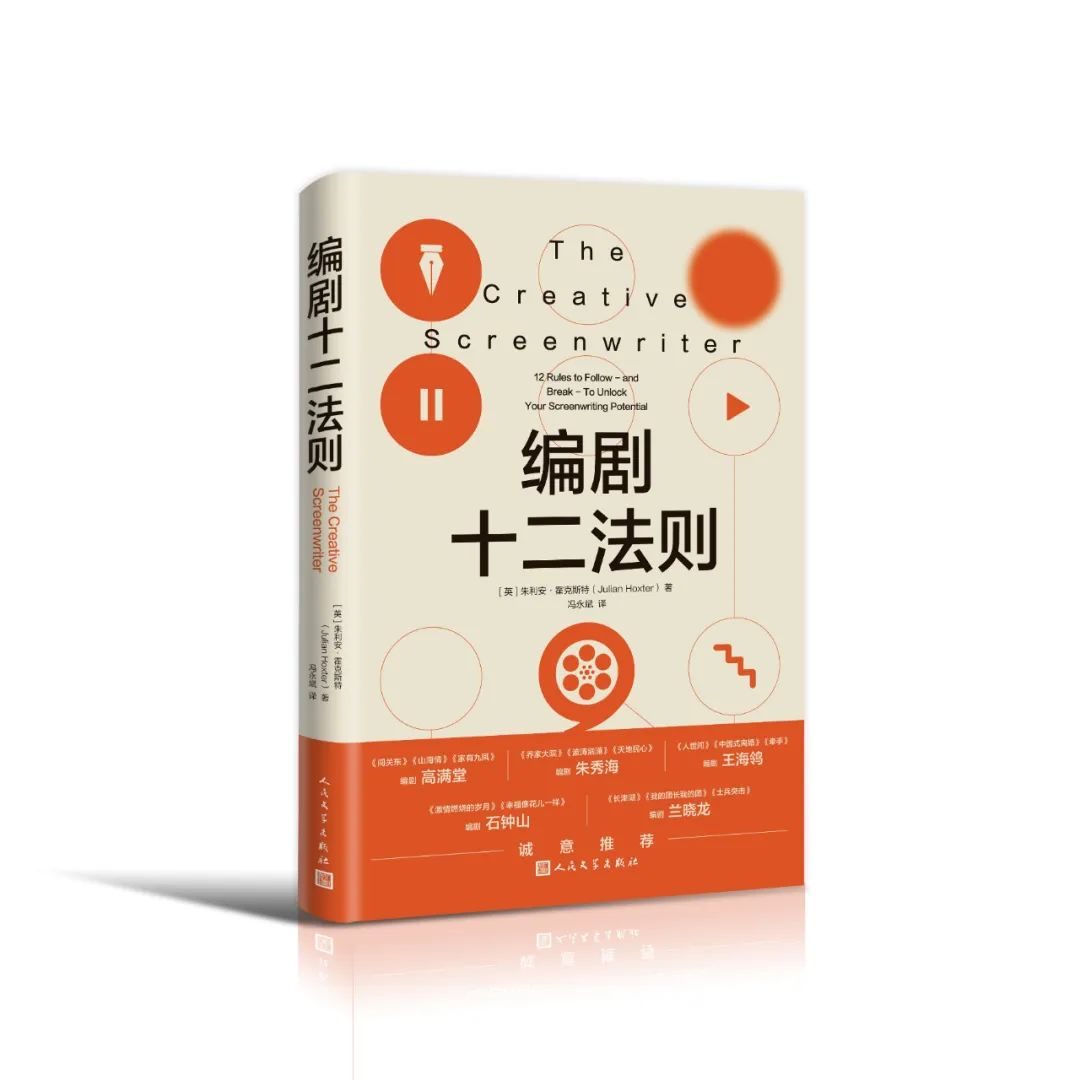How does the screenwriter do not win without tricks?
Author:People's Literature Publishin Time:2022.08.25

"Twelve Laws of the screenwriter" real shot picture
When I was a kid, I wrote well and won the prize. The fennel "anise" of the fennel bean can write four tricks. However, I can only write a book or cursive script.
Because I practiced the word of the word and the foundation of the strokes, I practiced the regular script, and the regular characters were not stable. It's "fast and good." Write a few words that look chic and show off to your classmates, and you can't help but proud. Later, I saw a lot of knowledge. I knew that I couldn't write at all, and at most it was a little smart.
Little cleverness is not long -term. At first glance, there is no light in the blink of an eye. Occasionally, it is okay to play tricks, but it must not be heavy.
The matter of writing is to talk about writing the script.
Last year, the editor of the Humanities Society recommended me to translate the "Twelve Laws of the screenwriter", and began to hesitate and timid. Later, I browsed a few originals and decided to try it. Because I realize that translation of this screenwriter lecture is not only a theoretical intensive class, but also a reflection on writing experience.

"Can't Write ~ Screenwriter Yoshimaru Keiyu's unorganized life ~" stills
01
Calligraphy is an art, but before the art, you must recognize that writing is a craft. The basic pursuit of craftsmanship is practical function. The basic function of Kaizi is to communicate clearly and clearly. Based on this, it is good -looking and orderly beauty. The script is the change and breakthrough of the regular script rules. Cursive or more stylish artistic bodies are further breakthrough rules and develop unique personal rules.
The same is true for writing the script. You must first achieve basic functions.
There are two basic functions of the script. First, as a literary text, it is used to tell stories, second, as a technical document, to guide team collaboration.
As a part of the film and television production process, the script must first realize the basic functions in order to pay attention to the height of art and commercial income -the readers of the script are not imagined film and television players, but industry readers and your collaborative creators. If you want to communicate effectively and promote your work, you must let your script evoke their experience and imagination (of course, they have to train well, knowing how to read the script, this is another topic).
As for the personal style, depth of thought, human care, etc., on the basic function, it relies on continuous experience accumulation and technique.
Facing the methodology of screenwriters, many friends of industry (including me) will feel panic, and some are afraid of raising rules and formats. They feel that it is like drilling into a cage -logic is really boring and strangled creativity. But sometimes I am afraid that there is no regularity, there is no way to verify, I do not know where to evaluate my work, there is no sense of security. For example, to list the brain storms, set up blocks, make up the plot, and even take out the "Internet big data" to seek a sense of security. As a result, it is either a short excitement in detail, or the concept of long -term suspended abstraction, but I do n’t know whether it wants to do it in the end What a story.
Those who have held topics, planning meetings, or script meetings are probably deeply experienced in "chicken and duck". Everyone's respective experience and imagination are not computer data, and they can be interconnected or sent in Bluetooth. The sudden imagination and the clever movement are of course powerful, but the basic goals and consensus are indispensable for the team's creative work. Otherwise, it will talk about splitting from basic words to specific creativity. The solution is to establish rules (or principles) and use popular and effective methodology.
Such as the story structure. Almost all books about "storytelling" are described, or deep or shallow, but in the final analysis, you can infer the psychological mechanism of human beings relying on language (text and audiovisual) symbolic encoding, acceptance and decoding. So we often hear the "vulgar set" calligraphy: the story is rooted in human nature.
The "Twelve Laws of the screenwriter" talks about a very interesting concept, called "mode recognition" -If we know something, we always want to know more related; once you know more In contrast to our guessing with actual progress and results -because this is the way we understand the real world (maybe this is gossip).
The story is not reality, but a realistic simulation fragment containing a certain value or meaning. Therefore, when the details and doctrines from reality experience and reading (watching) experience are mixed out, the structure is needed to restrain creativity and guidance. Especially in the pragmatic collective discussion stage, the structure of the structure is essential.
Of course, this does not mean to use the rules as a dogma and simply apply the formula.
The Chinese book name emphasizes the "Twelve Laws". In fact, the core intention is hidden in the English subtitle- "12 Rules to Follow -And Break -TO UNLOCK Your Screenwrit Potential". The establishment of the law is sometimes to break. Conversely, the premise of breaking the law is to be familiar with the law.
The attention of writing methodology is nothing more than "what is good" and "how to do good", and deepen some of the "Story" like McKee, which will involve "why" at the philosophy and reality. The twelve rules of the screenwriter are based on gradual practical exercises as a clue and explained "why" in popular cases.
What's even more rare is that the author said "not doing this, or" and explained the reason for the laws of each section.
For example, this book also talks about the three -scene paradigm, but after the analysis follows the three scenes, the author specifically emphasizes: you don't have to follow the tradition of predecessors. However, you'd better know how to tell stories with a three -scene paradigm, so when you are alone, you can know what you are doing and what effect you will tell the story. 02
The twelve rules starting from the format of the general script of Hollywood, meticulous to English fonts and fonts. This has no practical value? But the format is the incision of the problem. The author let us think about "why the format is important" or "the collaborative creation behind the format".
As a technical documentation, the script is a more direct communication tool, which not only involves you better express your creativity, but also involves respect for the collaborator. Because writing the script is never spoken by yourself, your readers are agents, investors, producers, directors, actors, and even makeup artists. Different people must accurately and quickly find the required information.
Writing scripts will never be done overnight, but to handle different natures of text at various stages, and there are different demands and writing.
For example, the "Outline Outline" and the "Treatment" that sells stories is easy to confuse. Many companies are good at mentioning the needs to the screenwriter vaguely, saying that it is out of an outline, but constantly asking for questions. If you do n’t clarify your details, or if you do n’t know the outline, you want to have a plot outline first, or let you write two plays.
However, the demander can not know what he wants, but an excellent screenwriter always makes himself a bit. It is very important to know who you are communicating with who you are communicating with you -unless you just withdraw the ticket.
Stills of "Adapted Script"

03
Compared with the classic screenwriter, the latest people in the "Twelve Laws of the screenwriter" are the attention and thinking of the current film and television trends.
For example, Hawkes not only analyzes the differences between traditional Hollywood movies and current movies and online dramas (especially rhythms) in the period of streaming media, but also analyzes the story difference between Hollywood commercial films and "independent docks" movies.
In the exquisite movies, it is no longer the "old set" "Casablanca", "Godfather", and "Chinatown", and the various types after the millennium. Such as "The 500 Days of Hethamo" in 2009, "Bone of Winter" in 2010, "City of Elyssed" in 2016, and the latest "Qiao Qiao's Love World" in 2019.
The scripts of excerpts include traditional Hollywood classics such as "Alien" and "Berbittari", as well as "new classics" that are less traditional such as "Lost Tokyo" and "End of the World".
In the section where the creator experience talks, in addition to the Hollywood predecessors, there are Quentin Talentino, the screenwriter director of "Blasting Drummer" Noah Margo Bach, and the screenwriter director of "Escape from the Town" ,and many more.
这些“突围(breakout)”的案例,是翻译过程中最令人兴奋的部分,法则在告诉我们如何按部就班,而这些创作者用切身经验告诉我们如何突破法则——但切记,高手不宜随意模仿, They are really fighting with the rules.
As we all know, the threshold for writing the script is very low, relying on talent, inspiration and luck can bring fame and fortune, but good ideas and luck are also a dodge, which makes people intentionally or unintentionally bypass the story, characters, and themes.
This is like fighting, and I can't beat it. Duan Yu can rely on Ling Bo's micro -step and Shi Ling Shi Shi Shi Shiqi to truly calm the enemy. After all, he must use the six vein god swords.
"Can't Write ~ Screenwriter Yoshimaru Keiyu's unorganized life ~" stills

04
There are so many books on the methodology, and it is not possible to do it without hurting, but the premise is to use it for yourself and form your own experience in practical exercises, rather than being restrained by it.
Wang Yuyan reads the secrets of martial arts in the Murong Family Library. Murong Fu took her like a plug -in moving hard disk, which can be analyzed at any time and see the trick. But when she met Xiao Feng, she was not spirited, because Xiao Xia was very fast, hard bridges and hard horses, and they did not play. The fisting method, palm method, Shaolin Kung Fu, and beggar helped merit.
This is the inevitable failure of the theorist in front of the strong house.
Another example is that Linghu Chong's Dugu Jiujian has no routine, no tricks win, no matter what weapons the other party uses, you can see the trick, find out the opponent's flaws according to the actual situation, and make a judgment.
However, it is necessary to know that Xiao Feng's internal skills are well -known, and there are practical experiences of making a thousand troops alone. There is a trick.
This is the highest state of craftsmanship. Just as the author explained the "rule" officially, he threw us a reminder of Walter Hill ("Alien 2" screenwriter):
"I like the script, my favorite is: it has no certain rules."
So, how can this state of unparalleled winning?
Remember the Article 13 of the Twelve Laws of the screenwriter -write down, do not stop.
New generation screenwriter guide

Step 12 to put your creativity on the screen
Not only teach you the basic rules of movie screenwriters, but also allow you
Inspired the development trend of the film industry, and the use of the rules of usage should respond to the evolution of the creation of the new era
"Shan Haiqing" screenwriter
Gao Mantang
"Qiao Family Courtyard" screenwriter
Zhu Xiuhai
"The World" screenwriter
Wang Haiyu
"The Years of Passionate Burning" screenwriter
Shi Zhongshan
"Changjin Lake" screenwriter
Lan Xiaolong
Sincerely recommend
★ There is no shortcut for creation, but the law allows you to take less detours. This guideline has refined the screenwriter skills into 12 key elements, in -depth explanations of the basic knowledge and rules of the screenwriter, and deepening your understanding of the script.
★ This book can be said to be a new generation of screenwriter guidelines. The author first takes you to understand the changes in the film industry and drama in the current streaming media era. Out of your own complete script.
★ The rule is established, sometimes to break. In addition to analyzing the development of classic drama, this book has also introduced innovative screenwriter practices that transcend the rules, encourage you to create freely, and strive to take the road unique to your own on the screen.
★ The author explains the classic scripts, such as "Alien"; also observes new works in the industry, such as "Qiao Qiao's Whimsical World". Whether you are a novice or a mature screenwriter that has been touched in the industry, you can discover the Hollywood blockbusters, low -cost movies, and more types of films to inspire infinite inspiration.
★ After each rule, there is a "closed door writing" link to guide you to do a targeted practice on the content you just learned.
★ Many chapters in the book set up "model learning" links, allowing those tricks and directors who are already successful in the industry to share the tricks used in practice in practice.
★ Some chapters in the book set up a "Breakout Star" link, let Quentin Toronotino, Noah Bombach, etc. "who did not follow the unusual way" appeared to tell you how to master the foundation of the law. The rules of breakthroughs are made, so as to enter a completely different state of screenwriter creation.
- END -
Treasure calendar: Which bird is British bird?

Zhanlu's collection calendar, a civilized treasure every day, customize your exclu...
Water Yun -flowing beauty, the source of life

□ Wu WeiSeeing the desert, I would desire the coming of the oasis, and I wanted t...